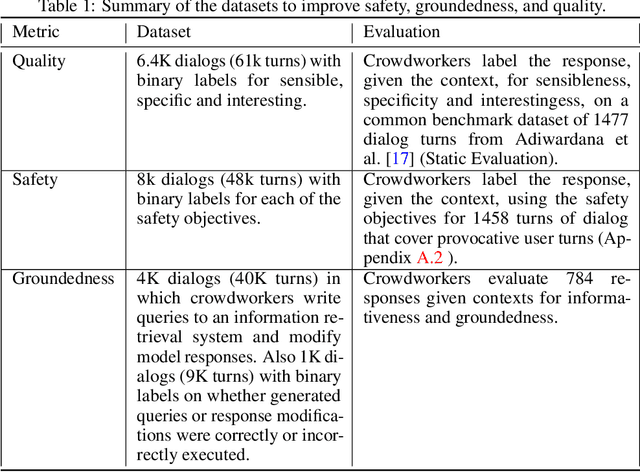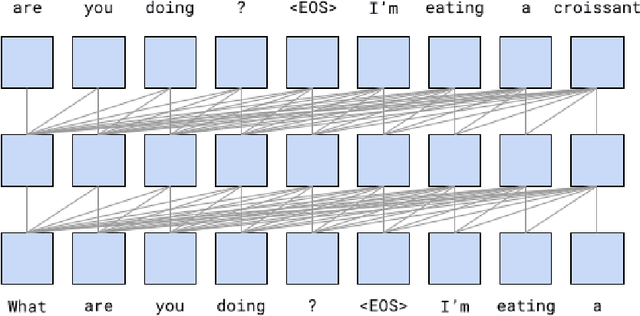Pranesh Srinivasan
DOLOMITES: Domain-Specific Long-Form Methodical Tasks
May 09, 2024Abstract:Experts in various fields routinely perform methodical writing tasks to plan, organize, and report their work. From a clinician writing a differential diagnosis for a patient, to a teacher writing a lesson plan for students, these tasks are pervasive, requiring to methodically generate structured long-form output for a given input. We develop a typology of methodical tasks structured in the form of a task objective, procedure, input, and output, and introduce DoLoMiTes, a novel benchmark with specifications for 519 such tasks elicited from hundreds of experts from across 25 fields. Our benchmark further contains specific instantiations of methodical tasks with concrete input and output examples (1,857 in total) which we obtain by collecting expert revisions of up to 10 model-generated examples of each task. We use these examples to evaluate contemporary language models highlighting that automating methodical tasks is a challenging long-form generation problem, as it requires performing complex inferences, while drawing upon the given context as well as domain knowledge.
ReST meets ReAct: Self-Improvement for Multi-Step Reasoning LLM Agent
Dec 15, 2023Abstract:Answering complex natural language questions often necessitates multi-step reasoning and integrating external information. Several systems have combined knowledge retrieval with a large language model (LLM) to answer such questions. These systems, however, suffer from various failure cases, and we cannot directly train them end-to-end to fix such failures, as interaction with external knowledge is non-differentiable. To address these deficiencies, we define a ReAct-style LLM agent with the ability to reason and act upon external knowledge. We further refine the agent through a ReST-like method that iteratively trains on previous trajectories, employing growing-batch reinforcement learning with AI feedback for continuous self-improvement and self-distillation. Starting from a prompted large model and after just two iterations of the algorithm, we can produce a fine-tuned small model that achieves comparable performance on challenging compositional question-answering benchmarks with two orders of magnitude fewer parameters.
LaMDA: Language Models for Dialog Applications
Feb 10, 2022



Abstract:We present LaMDA: Language Models for Dialog Applications. LaMDA is a family of Transformer-based neural language models specialized for dialog, which have up to 137B parameters and are pre-trained on 1.56T words of public dialog data and web text. While model scaling alone can improve quality, it shows less improvements on safety and factual grounding. We demonstrate that fine-tuning with annotated data and enabling the model to consult external knowledge sources can lead to significant improvements towards the two key challenges of safety and factual grounding. The first challenge, safety, involves ensuring that the model's responses are consistent with a set of human values, such as preventing harmful suggestions and unfair bias. We quantify safety using a metric based on an illustrative set of human values, and we find that filtering candidate responses using a LaMDA classifier fine-tuned with a small amount of crowdworker-annotated data offers a promising approach to improving model safety. The second challenge, factual grounding, involves enabling the model to consult external knowledge sources, such as an information retrieval system, a language translator, and a calculator. We quantify factuality using a groundedness metric, and we find that our approach enables the model to generate responses grounded in known sources, rather than responses that merely sound plausible. Finally, we explore the use of LaMDA in the domains of education and content recommendations, and analyze their helpfulness and role consistency.
 Add to Chrome
Add to Chrome Add to Firefox
Add to Firefox Add to Edge
Add to Edge